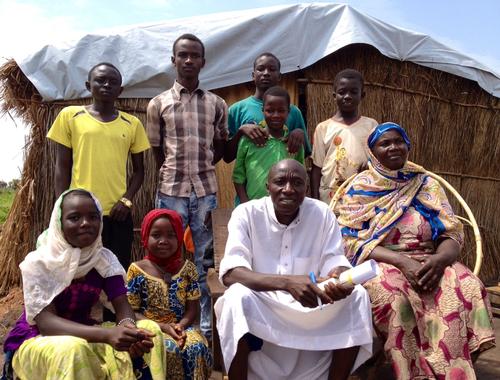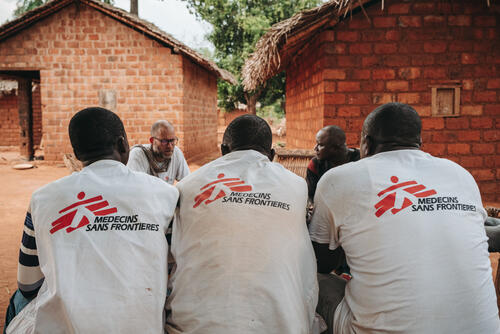Since the civil war of 2013, CAR has been marked by cycles of intensive violence. Fighting between the government and non-state armed groups, spurred by an election process, escalated in early 2021.
MSF sees the direct consequences of violence on the health of individuals and entire communities. There is a severe lack of access to healthcare; trained health workers are scarce, health services are poorly resourced and often targeted by the conflict; and patients need to travel hundreds of kilometres on dangerous roads to reach medical structures.
In CAR, we focus on treating victims and survivors of sexual violence; provide sexual and reproductive healthcare, including maternal healthcare; and provide treatment to people living with HIV.
Our activities in 2023 in Central African Republic
Data and information from the International Activity Report 2023.
2,499
2,499
€70.6 M
70.6M
1997
1997
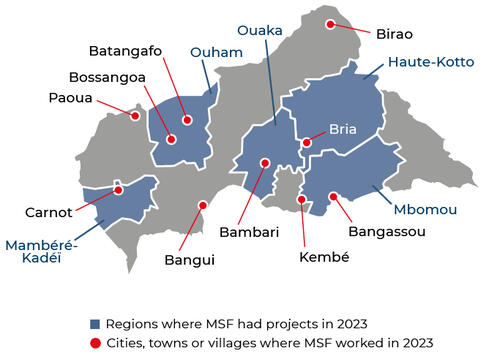

725,700
725,7
10,600
10,6
9,230
9,23

6,030
6,03
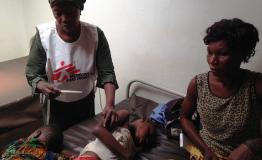
“It is painful to see my children suffer like this”
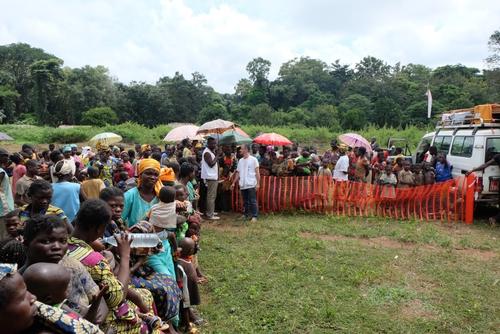
A day in the bush
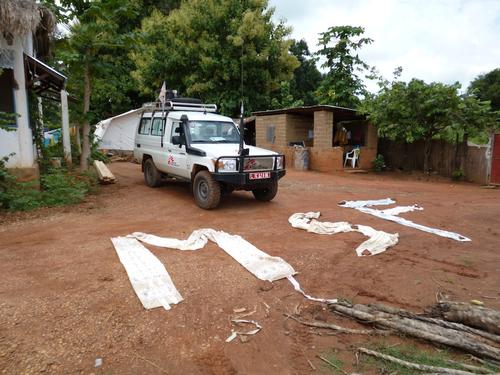
MSF denounces violence against teams
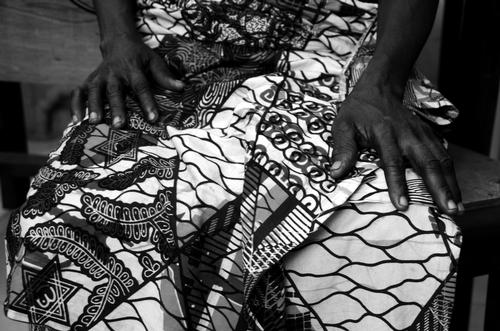
MSF treats victims of sexual violence in Bangui

"The population does not buy the idea that this is a religious conflict”

MSF receives 31 new wounded at the General Hospital
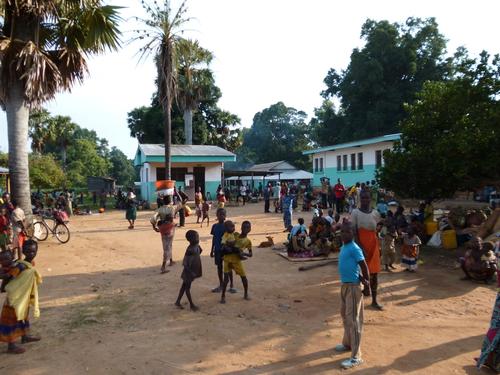
Thousands of people fearing violence look for refuge at the hospital and military compound in Batangafo
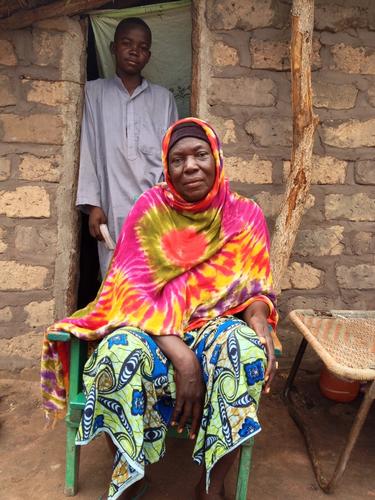
"I do not know what to do with my life or those of my children"
